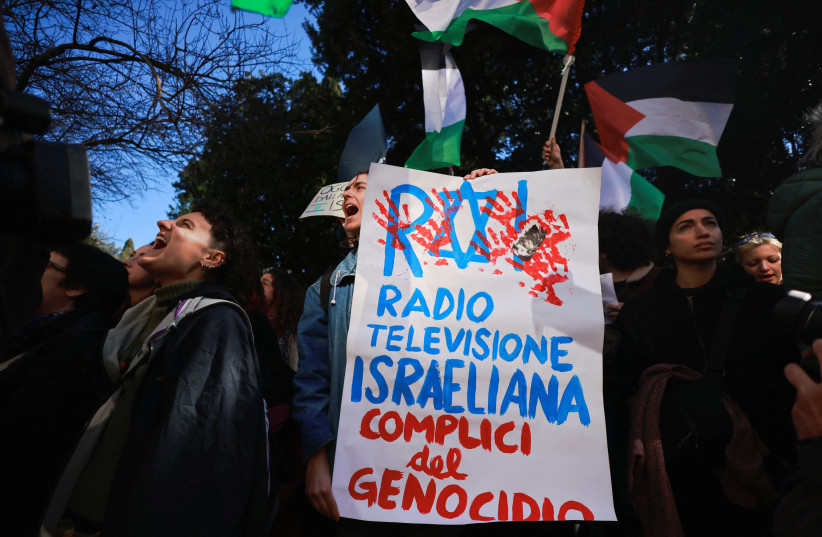The University of Turin is suspending a collaboration agreement with Israeli universities and research institutes after a wave of student protests over the Israel-Hamas war.
The school’s academic senate voted on Wednesday to ban participation in an initiative financing joint research projects between Italy and Israel while rejecting calls for a broader cessation of ties with Israeli universities.
The decision has raised concerns among Italian Jewish leaders even after the university’s rector emphasized that collaboration currently in place would continue.
Repealing nine collaboration agreements
Student groups had appealed to repeal nine collaboration agreements the University of Turin currently has with Israeli universities, citing a fear they could finance dual-use technology — or projects that serve both civil and military purposes — amid Israel’s ongoing war in Gaza. The student collectives “Cambiare Rotta” and “Progetto Palestina” interrupted an academic senate session with protest banners on Tuesday.
But the senate only agreed to vote on a motion prohibiting participation in the “Italy-Israel industrial, scientific and technological cooperation agreement,” a 2024 initiative of Italy’s Ministry of Foreign Affairs and International Cooperation focused on soil technology, water technology and precision optics. The motion was approved by a majority of members, with two abstentions and one vote against by Susanna Terracini, director of the mathematics department.

“I would have had no problem approving a request for a ceasefire, because I am deeply disturbed by the massacre that is taking place in the Gaza Strip,” Terracini told the local newspaper Corriere Torino. “But I am strongly against academic boycotts, because since possible war projects are excluded, collaborations are an element that brings understanding and peace.”
While the decision is limited in scope, it is still notable as the University of Turin is the first Italian university to break any ties with Israeli universities and because calls for academic boycotts of Israel are not uncommon around the world but result in practical consequences only very rarely.
Since its decision, the university has fielded accusations of succumbing to antisemitic sentiments. Noemi Di Segni, president of the Union of Italian Jewish Communities, told ANSA that her alarm about antisemitism at Italian universities was “overflowing.”
Di Segni said she urged Prime Minister Giorgia Meloni and university administrators to “ensure that the International Holocaust Remembrance Alliance’s definition of antisemitism is fully implemented by all Italian universities, making it abundantly clear that all forms of boycott and demonization are antisemitism.”
The University of Turin’s rector Stefano Geuna said the academic senate’s decision against scientific collaboration was neither a boycott of Israel nor a form of antisemitism, but instead “an action on a very specific call.” He said collaboration between the university and Israeli academics would continue.
“All the agreements currently in force with Israeli universities, and there are many, remain valid,” Geuna said.
